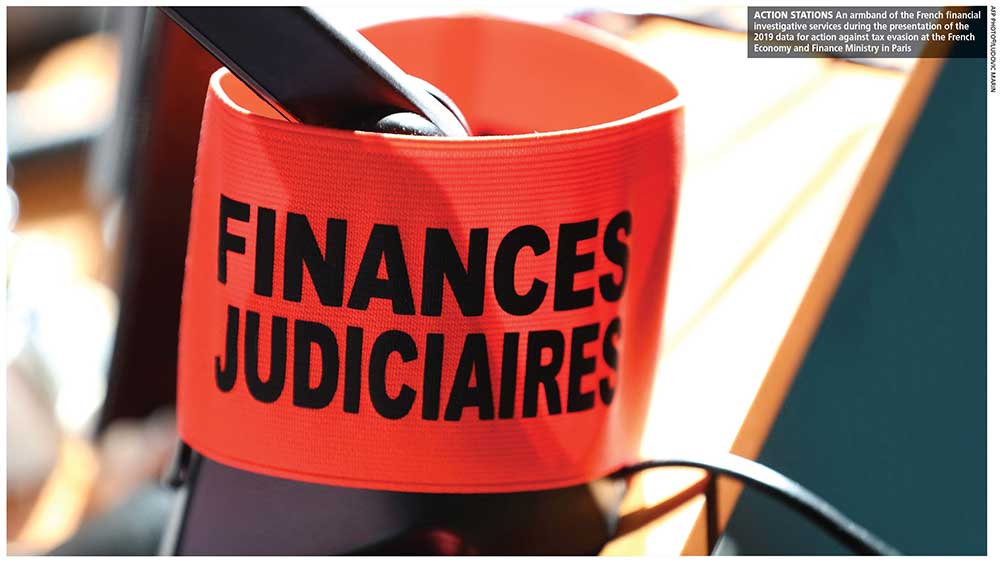DIRTY MONEY UNDER THE MICROSCOPE
Lawmakers in European countries are taking steps to halt the misuse of financial privileges – Rajika Jayatilake

The EU has decided that it is time to ‘unshell’ the millions of empty shell companies that are idling in their economies to avoid paying European taxes. Recent data from Moody’s Analytics shows that the UK has nearly five million shell companies while European Union member states have four million, led by France and Cyprus.
An analysis of data on entities suggests deception: for instance, thousands of people who have been named as ‘company directors’ are reported to be under five while one director of a Belgian company is apparently over 900 years old. Meanwhile, 22,000 of these entities have the Great Pyramid in Egypt as their registered address!
The main purpose of anonymous shell companies is to deny visibility to the money invested in them and hide the real owners or ultimate beneficial owner (UBO) of the assets. These entities are inevitably associated with corruption, tax evasion, money laundering and terrorist financing.
Some of them were recently exposed in historic investigative reports such as the Pandora Papers and Panama Papers by the International Consortium of Investigative Journalists (ICIJ). Anonymous shell companies are of particular concern in the EU because of the misuse of privileges leading to tax avoidance and evasion, money laundering and abuse of social rights.
According to Senior Director and Head of the Financial Crime Compliance Practice in Europe, Africa and Americas at Moody’s Analytics Ted Datta, lawyers and middlemen are also guilty of helping the super-rich to conceal their gains in such corporate entities.
He says that analysts need to look at the people behind shell companies to see if there are other signs of nefarious activities. Nevertheless, the status quo is about to change as lawmakers in the EU are demanding immediate action from their countries’ leaders against these shell companies, which are adding little value to their economies.
Dutch politician, member of the European parliament and chair of the European parliament’s tax committee Paul Tang says: “We need to raise revenue by tackling tax avoidance and shell companies are at the heart of it.”
The Unshell Directive or Anti-Tax Avoidance Directive (ATAD 3) was introduced by the European Union in December 2021 to prevent the misuse of shell companies for tax purposes. If implemented, it will ensure that the untouched income of shell entities owned by multinational EU corporations would be taxed.
However, this proposal requires the unanimous support of all 27 European Union member states to become law and many governments have yet to consent to the directive.
Nevertheless, EU anti-money laundering laws agreed upon in January require service providers of companies to verify customer identities, similar to what the banks are doing. EU member states are hoping that this law can restore their image of integrity following years of disgrace with black money involvement.
Lawmakers have banned transactions in cash over 10,000 euros to make it difficult for criminals to launder money. Expensive cars, yachts and private planes are the luxury toys of oligarchs.
From 2029, EU member states will also be able to add football clubs and agents to the list. The UK’s tax and customs authority has already charged some intermediaries with negligence and imposed fines on them.
However, there is a very real question of how legislation can screen companies for nefarious activities. If the criteria are too broad and unspecific, it will lead to extensive paperwork and legal uncertainties.
And if the criteria are too narrow and specific, companies will be able to escape through the loopholes. Datta calls it the ‘infinite game’ played by dirty money rule enforcers and rule breakers.
With an understanding of the grave consequences of money laundering and terrorist financing, the European parliament and council of the European Union have agreed to launch a new EU agency called the Anti-Money Laundering Authority (AMLA) to address these issues.
This massive establishment with 400 staff will directly oversee 40 high-risk credit and financial institutions including cryptocurrency services.
It will be authorised to supervise and coordinate strategies with EU member states to strengthen detection and combat suspicious cross border transactions.
AMLA will also have sanctioning powers to ensure that the processes will comply with European financial regulations.
However, there was some uncertainty at the beginning of this year as to which of the EU countries would host the AMLA headquarters. The major cities considered were Paris, Frankfurt, Rome, Madrid, Vilnius, Vienna, Brussels, Riga and Dublin. Ultimately, the European parliament and EU council chose Frankfurt as the seat of AMLA.
While Germany’s finance minister Christian Lindner looks to AMLA to “take the fight against money laundering to the next level,” it is gearing up to be a game changer in identifying dirty money and will no doubt be a force to reckon with in ‘unshelling’ shell companies.
